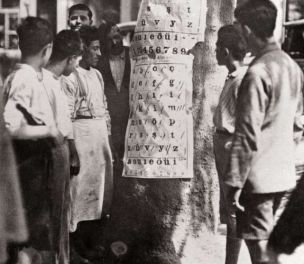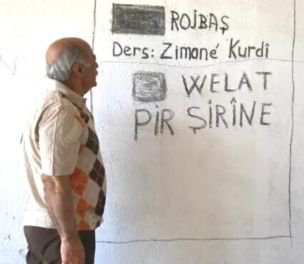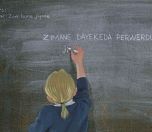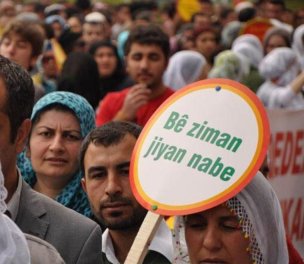Survey: 31 percent of Kurdish families don't speak to their children in Kurdish
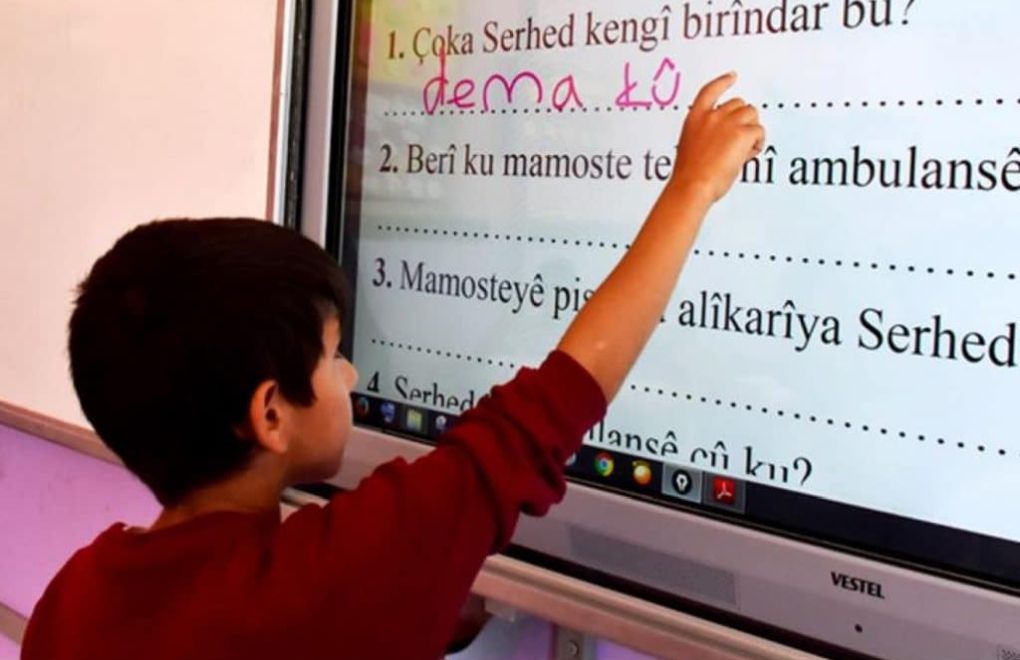
Photo: Social media
Click to read the article in Turkish
The Socio-Economic Field Research Center has shared the results of its study titled "Education and Speaking Levels of the Kurdish Mother Tongue."
The study was conducted across Turkey, between April 20-May 5, 2022, and in the provinces of Adana, Adıyaman, Ağrı, Ankara, Antalya, Batman, Bursa, Dersim, Diyarbakır, Antep, Hakkari, İstanbul, İzmir, Mardin, Mersin, Muş, Urfa, Şırnak and Van provinces of Turkey, 2638 people were interviewed.
89.4 percent of the respondents said that their mother tongue is Kurmanji, 10.1 percent Kırmancki/Zazaki, and 0.5 percent both Kurmanji and Kırmancki/Zazaki.
68.4 percent of the interviewees stated that they "always" speak in their mother tongue in the household/family, while 22.8 percent responded as "occasionally", 6.7 percent "rarely" and 2.1 percent "never."
While 47.6 percent of the interviewees stated that they do understand their mother tongue at a "very good level", 24.2 percent answered that question by saying "good level."
The rate of those who speak their mother tongue very well is 34.3 percent according to the survey, and the rate of those who stated that they speak their mother tongue at a "good level" is 30 percent.
The rate of those who can read in their mother tongue at a "very good" level is 26.1 percent, while the rate of those who responded to the same question by saying at a "good level" remained at 21.7 percent.
Among the participants, the rate of those who can write in their mother tongue is 20.5 percent, while the rate of those who stated that they can write at a good level remained at 17.7 percent.
Of the participants who do not understand or partially understand their mother tongue, 31.7 percent said "because there was no one who spoke Kurdish in my family / around me, I could not learn it properly."
28.6 percent said that "because there was no school and resources where I could learn and develop my mother tongue" to the same question. 19.8 percent also said, "Since my family did not want me to be excluded, they only taught me the official language ." 13.5 percent of the people who cannot understand or partially understand their mother tongue said that the reason for that is, "because it was forbidden."
Of the participants who can not speak or partially speak their mother tongue, 52.8 percent said that the reason for that is "because there was no school and resources where I could learn my mother tongue."
26.7 percent said, "because there was no one who spoke Kurdish in my family and my family did not teach." 6.9 percent said "because it is forbidden" and 6.7 percent said, "I was taught only the official language so that I wouldn't be excluded."
Families' concern for their children
72.8 percent of the interviewees stated that there are children in the 0-18 age group in their households. However, 67.7 percent answered "yes" and 31.5 percent "no" when they were asked whether they speak their mother tongue with these children in the households.
When those 31.5 percent who don't speak in their mother tongue were asked the reason for that situation, 49.8 percent said, "because people in our environment always speaks Turkish." 20.9 percent of them said, "because I do not know enough to teach."
10.9 percent said that "they do not want their children to suffer at school" while 7.6 percent answered, "because I do not speak my mother tongue."
When those 31.5 percent who don't speak with their children in their mother tongue were asked the reason for that situation, 49.8 percent said, "because our environment always speaks Turkish." 20.9 percent of them responded by saying "because I do not know enough to teach."
10.9 percent said that "they do not want their children to face difficulties at school" while 7.6 percent answered, "because I do not know my mother tongue." (RT/TB/VK)




sasa.jpg)
